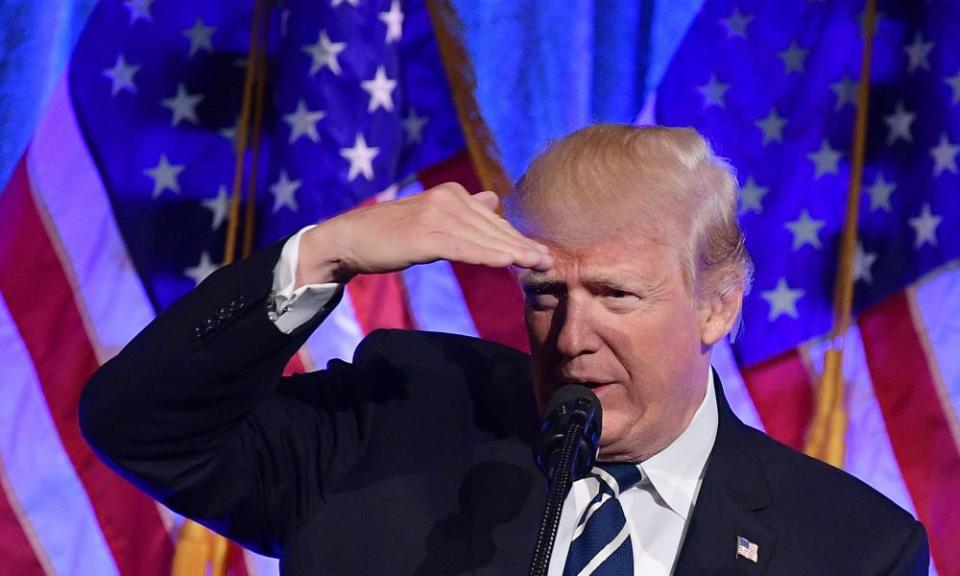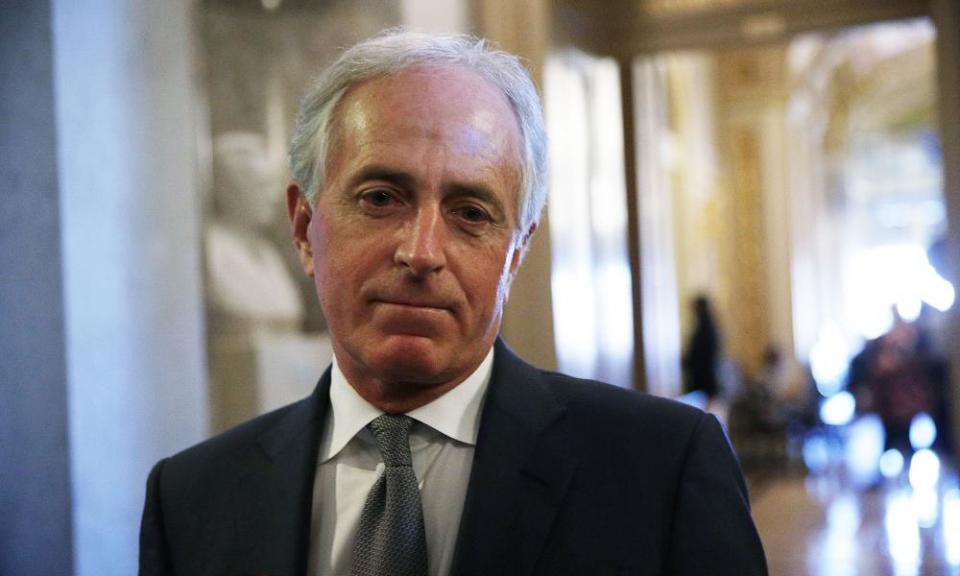Trump says opposing tax cuts will cost Democrats 'very big' in midterms
President hails Senate’s passage of tax bill as ‘one of the big nights’
Critics call bill a shameless giveaway to the wealthy
What will feature in the final version of the Republican tax plan?

President Trump on Saturday hailed the passage of a sweeping tax reform bill through the Senate in the early hours of the morning, calling it “one of the big nights” and predicting Democratic opposition would “cost them very big” in midterm elections next year.
Critics warned, however, that the bill was a shameless giveaway to lobbyists, corporations and the wealthy that would hurt ordinary Americans and push up the national debt.
After nine months of stumbles and setbacks, the vote put Trump and the Republican-controlled Congress on the verge of their first major legislative victory.
The first major overhaul of America’s tax code in more than 30 years will pave the way for a $1.5tn reduction in tax bills, permanently slash the corporate tax rate by nearly half, to 20% from 35%, and also offer temporary cuts to individual tax rates.
Congress’s own analysts say it will come at huge cost to the public purse, adding around $1tn to the national deficit. But Republicans who for years have demanded fiscal restraint rejected those numbers to push the bill through.
The New York Times was utterly damning in an editorial, describing the bill as a “looting of the public purse by corporations and the wealthy”, which it said showed that “Republican leaders’ primary goal is to enrich the country’s elite at the expense of everybody else, including future generations who will end up bearing the cost”.
The bill also tacked on some highly controversial Republican goals, including opening the Arctic national wildlife refuge to drilling for oil, and is widely seen as a backdoor attack on the Affordable Care Act.
It ends one of the key provisions of the ACA, the personal mandate, which forces healthy Americans to buy health insurance or face tax penalties. Without it insurers face a pool of older, more vulnerable customers, and the resulting rise in premiums is expected to mean 13 million Americans will lose health coverage within a decade.
The bill was hurried through the Senate in the early hours of Saturday, without even time for opposition senators to read it, much less for analysts to cost out the last-minute changes needed to secure the slim 51-49 majority that passed it.
“The Republicans have managed to take a bad bill and make it worse,” said the Senate Democratic leader, Chuck Schumer. “Under the cover of darkness and with the aid of haste, a flurry of last-minute changes will stuff even more money into the pockets of the wealthy and the biggest corporations.”
Some of the amendments had been scrawled on to the 500-page draft by hand, and several seemed to have little to do with taxes. Adding to Democrats’ outrage, they got first glimpse of many changes via lobbyists, who had seen the bill before them and sent on photographs.
But they were powerless to stop it, because Republicans used a procedural rule that meant they needed only a simple majority in the chamber to pass the bill. Final-hour concessions brought all but one of the Republican rebels on board.

Bob Corker of Tennessee, the lone hold-out, voted against the bill because of concerns about its impact on the national debt. He described himself ruefully as a “dinosaur on the fiscal issues”, a relic from the days when his party made deficit reduction a core political goal.
Midterm elections next year proved a helpful spur for Republican leaders in both the House and Senate trying to rally support for the reforms. Donors have been calling for action on one of Trump’s main campaign pledges, to “restore” American competitiveness.
Legislators are wary of going into a campaign without a single major achievement to show for nearly a year of Republican control of both Congress and the White House. And most analysis of the bill suggests it will provide a rapid boost to overall economic growth, likely to appeal to any politician facing re-election.
“We have an opportunity now to make America more competitive, to keep jobs from being shipped offshore and to provide substantial relief to the middle class,” said Mitch McConnell, the Republican leader in the Senate.
Trump was in New York on Saturday to attend fundraising events. Speaking at the Cipriani restaurant on 42nd Street, he said: “We got no Democrat help and I think that’s going to cost them very big in the election because basically they voted against tax cuts. And I don’t think politically it’s good to vote against tax cuts.”
The reform is not quite over its final hurdle. There are substantial differences with the bill passed by the House of Representatives, ranging from the Arctic drilling to whether individual tax cuts will expire, and the fate of tax credits for student loans.
A committee will be tasked with melding the two, and the resulting bill will be presented to Trump. Having tweeted that he is looking forward to signing the changes into law “before Christmas”, on the morning after the vote said he expected rapid progress.
“Something beautiful is going to come out of that mixer,” he told reporters. “People are going to be very, very happy. They’re going to get tremendous, tremendous tax cuts and tax relief, and that’s what this country needs.”

